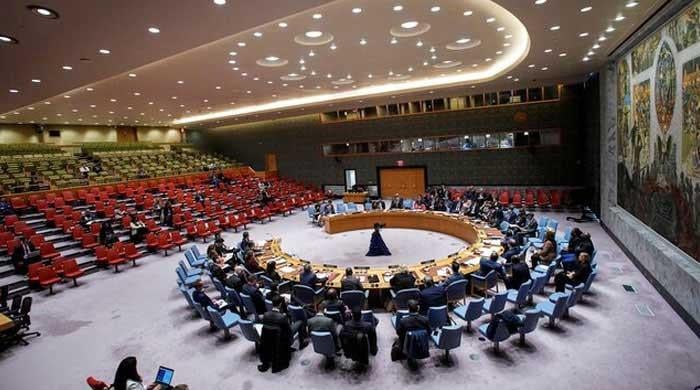Pakistan Elected as Vice-Chair of UNSC Counter-Terrorism Committee
In a noteworthy diplomatic achievement, Pakistan has been designated as the vice-chair of the United Nations Security Council’s (UNSC) Counter-Terrorism Committee. This committee is responsible for monitoring the enforcement of resolution 1373 (2001) regarding global anti-terrorism initiatives, according to a formal statement released by Pakistan’s mission to the UN on Wednesday.
Islamabad has actively championed the UN Charter’s core principles, significantly contributing to global peace and security. This includes its prominent role as a leading nation providing troops for UN peacekeeping missions worldwide. Pakistan secured its position on the UN Security Council in June 2024, succeeding Japan in the Asian seat.
For over two decades, Pakistan has suffered greatly from terrorism, resulting in over 80,000 fatalities and numerous injuries.
Pakistan has consistently highlighted India’s alleged role in sponsoring and supporting terrorist organizations, such as Tehreek-e-Taliban Pakistan (TTP) and the Baloch Liberation Army (BLA), to conduct attacks within Pakistan.
Relations between the two nuclear-armed nations have deteriorated significantly following a recent dispute over the deaths of 26 tourists in Pahalgam, Indian Illegally Occupied Jammu and Kashmir, which New Delhi attributed to Islamabad.
Pakistan has firmly denied these accusations, offering a transparent inquiry into the incident and drawing international attention to the alleged involvement of Indian proxies in terrorist activities within its borders.
Pakistan has also been appointed as Chair of the UN Security Council Committee established under resolution 1988 (2011), which oversees the implementation of sanctions against the Taliban.
Further emphasizing its diplomatic influence, Pakistan has been designated Co-Chair of both the Security Council’s Informal Working Group (IWG) on documentation and working methods, as well as the newly established IWG on Sanctions.
The documentation group aims to improve the Council’s procedures by enhancing transparency, efficiency, and inclusivity. The IWG on Sanctions is dedicated to improving the efficacy and structure of UN sanctions regimes.
According to the mission, these appointments signify recognition of Pakistan’s proactive engagement with the United Nations system, including its constructive role as an elected member of the Security Council, and represent international acknowledgement of Pakistan’s counter-terrorism endeavors.
The mission stated that Pakistan is dedicated to collaborating with the United Nations and fellow member states to promote the principles of the UN Charter and contribute to the global fight against terrorism alongside its international allies.
In the latest UNSC elections held on Tuesday, Bahrain, the Democratic Republic of the Congo, Latvia, Liberia, and Colombia were elected to serve on the Council for a two-year term starting January 1, 2026.
The Security Council is the sole UN entity capable of making legally binding decisions, such as imposing sanctions and authorizing the use of force. It comprises five permanent members with veto power: Britain, China, France, Russia, and the United States.
The remaining 10 members are elected, with five new members joining annually. Bahrain, Colombia, the DRC, Latvia, and Liberia — all elected without opposition — will succeed Algeria, Sierra Leone, South Korea, Guyana, and Slovenia.
To ensure geographical representation, seats are allocated to regional groups. However, even when candidates run unopposed within their group, they must still secure the support of over two-thirds of the General Assembly.



Comments (0)
No comments yet. Be the first to comment!
Leave a Comment